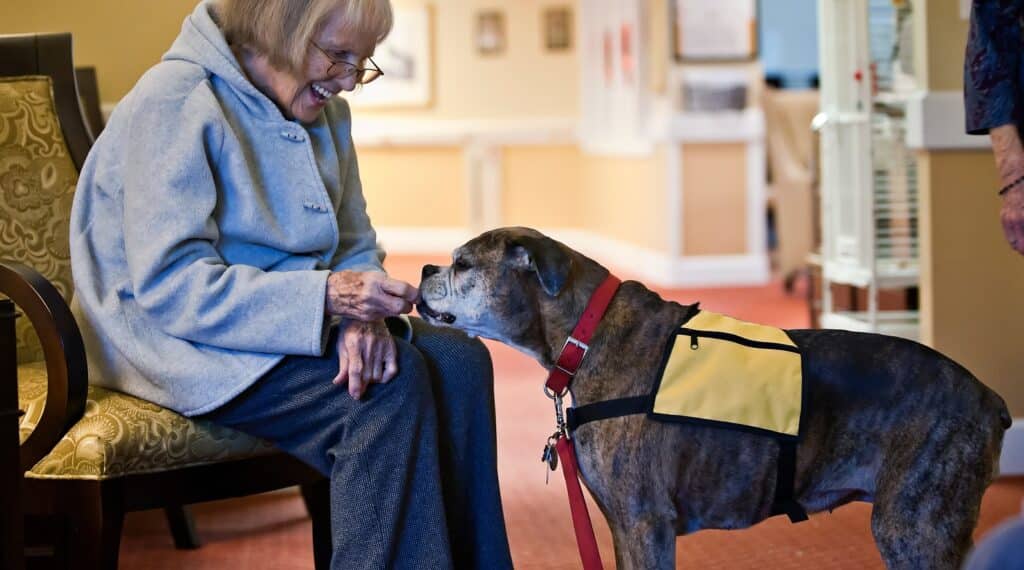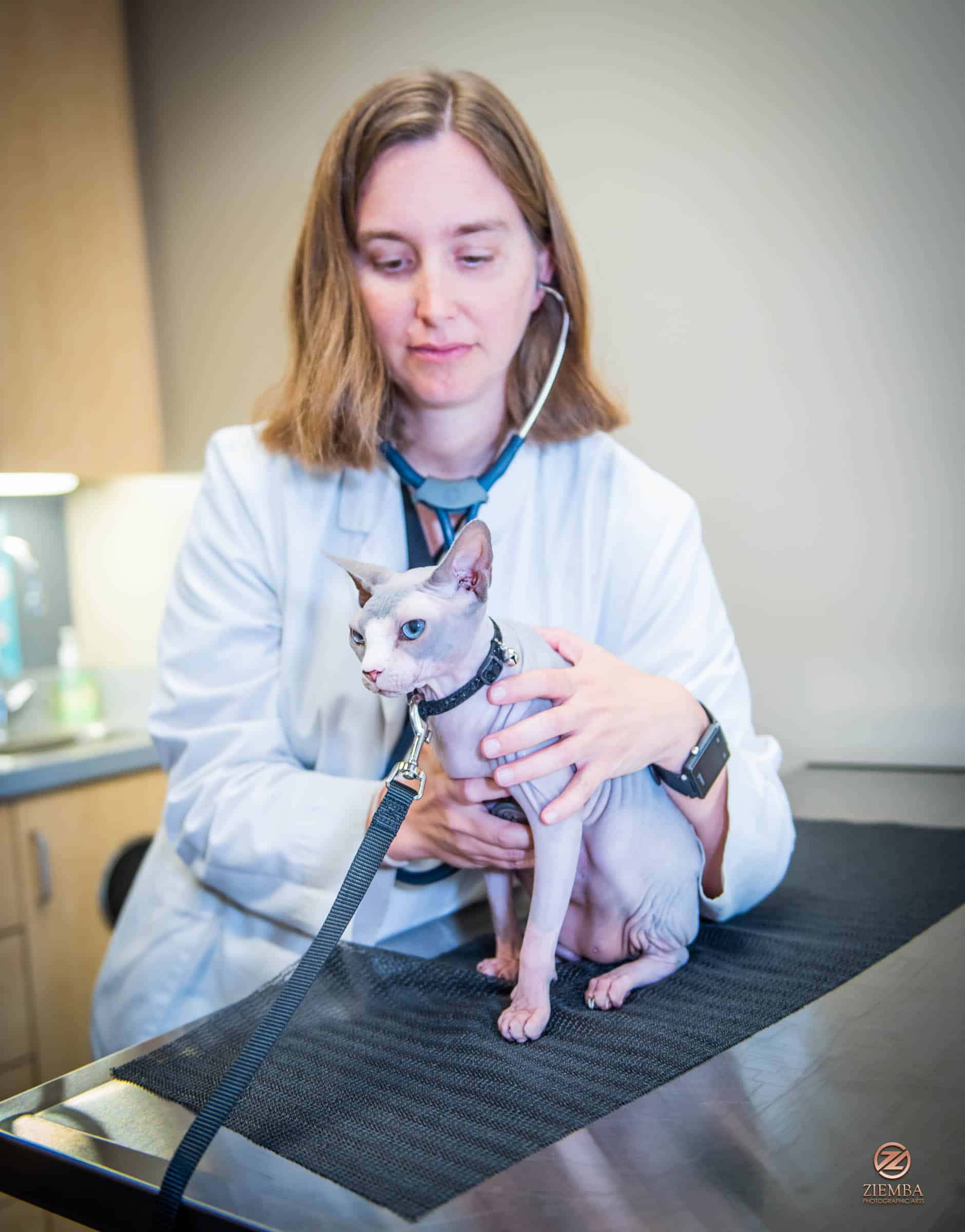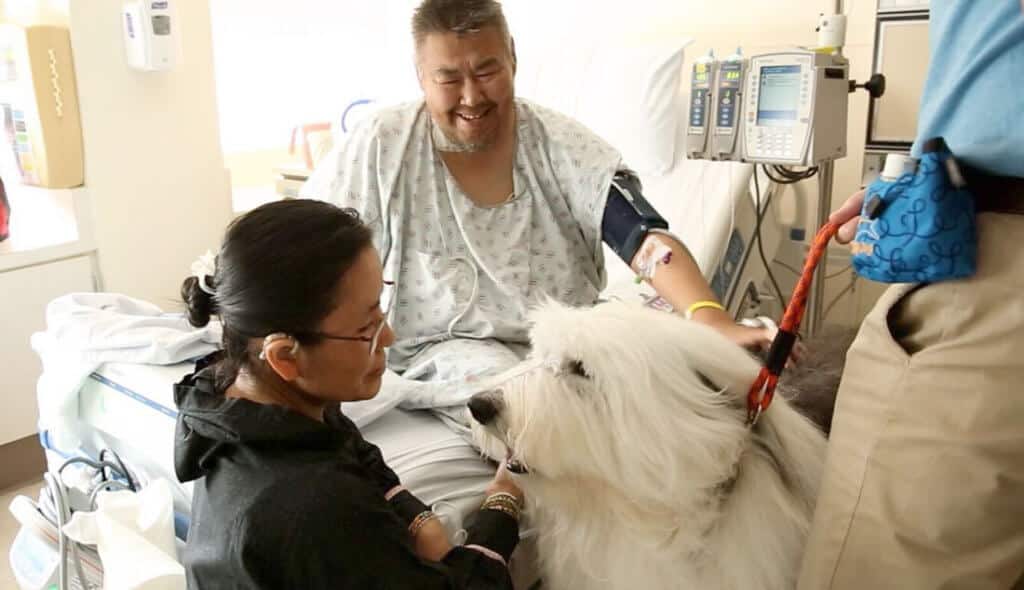



One Health Day is observed each year on November 3. The effects of COVID-19 have made especially clear how important the concept of One Health is to protecting the health of everyone. We want to revisit our blog post about One Health Day, because the concepts of One Health remain vitally important to protecting both the humans and the animals who work with or have contact with our Therapy Animal Program. Please visit the COVID-19 and One Health website to learn more about how One Health is important to dealing with this virus and the pandemic.
Originally posted October 30, 2019; updated October 25, 2022
Pet Partners is joining with other organizations around the world on November 3 in recognizing One Health Day, a global campaign that celebrates and brings attention to the need for a One Health approach to address shared health threats at the human-animal-environment interface. With our mission focused on the human-animal bond and our emphasis on infection control, Pet Partners supports the concept of One Health and how it can improve health for people, animals, and the environment.
The One Health Commission defines One Health as “a collaborative, multisectoral, and trans-disciplinary approach — working at local, regional, national, and global levels — to achieve optimal health and well-being outcomes recognizing the interconnections between people, animals, plants and their shared environment.” This means that when looking at health issues for human populations, we also need to look at our connections with the health of animals and the environments we live in, to address all the factors that can play a role in public health.
One example of this, and one that’s very relevant to our Therapy Animal Program, is the issue of zoonotic diseases. These are diseases that can be spread to humans from animals. It’s estimated that more than 6 out of every 10 known infectious diseases in people are spread from animals[i]. Addressing this issue requires not only caring for the health of humans who are or might be infected, but also taking steps to manage the health of animals that could potentially spread the diseases. This is how One Health is applicable to our mission.
 Some diseases can be communicated directly from infected animals to humans, such as rabies, salmonella, and some types of parasites. This could be a risk during therapy animal visits, and is the basis for our animal health requirements, rabies vaccination policy, prohibition on raw meat diets, and recommendations about avoiding contact with animal saliva and waste. Making sure that our therapy animals are healthy helps ensure that a client who is benefiting from a therapy animal visit is not at risk of becoming sick from a zoonotic disease as a result of the visit.
Some diseases can be communicated directly from infected animals to humans, such as rabies, salmonella, and some types of parasites. This could be a risk during therapy animal visits, and is the basis for our animal health requirements, rabies vaccination policy, prohibition on raw meat diets, and recommendations about avoiding contact with animal saliva and waste. Making sure that our therapy animals are healthy helps ensure that a client who is benefiting from a therapy animal visit is not at risk of becoming sick from a zoonotic disease as a result of the visit.
Other diseases can be carried and passed on by animals that are otherwise healthy, such as E. coli bacteria that is passed on to a human via an animal’s fur or something that the animal is wearing. Pet Partners addresses this risk with hygiene requirements for both therapy animals and humans. These measures include the following:
We also support the overall health and welfare of our therapy animals and the safety of visits through our tenet of You Are Your Animal’s Best Advocate (YAYABA). The bond between a handler and their animal is crucial, and it emphasizes that the handler plays a vital role in ensuring their therapy animal’s well-being. YAYABA supports the welfare of therapy animals in multiple ways:
All of these measures mean healthier therapy animals, and that means less risky and more successful therapy animal visits. Our therapy animals should benefit from their work too and not experience stress or other adverse health effects from making visits.

Our work bringing the human-animal bond to more people is another way that One Health is relevant to Pet Partners. The core concept of animals helping to improve human health and well-being is in line with the approach of One Health. Connecting people who can benefit from interactions with happy, loving therapy animals is a great example of an interdisciplinary approach to health. Supporting research and empirical evidence on the effects of these interactions is another example. And advocating for consistent standards and increased access to therapy animals is yet another example.
“One Health is a useful framework for maximizing the positive health effects of animal-assisted interventions and the human animal bond,” says Dr. Peter Rabinowitz, Director of the Center for One Health Research at the University of Washington. “In the therapy animal setting, it is important to consider the health of the patient as well as the health and welfare of the therapy animal. At the same time, it is important to ensure a calm, healing, and safe environment for both the therapy animal team and the patient.”
The importance of One Health to our therapy animal teams and the people they visit reflects the importance of looking at human, animal, and environmental health as a whole, and addressing public health through all these avenues. Our support of the One Health approach is also reflected in our advocacy activities. We joined the One Health Coalition in support of the One Health Act of 2019. The act did not pass during the 116th Congress, but was reintroduced for the 117th Congress in March 2021. This legislation would establish a framework for federal agencies to coordinate One Health activities under a One Health program. This action would significantly increase the use of One Health frameworks to address public health issues and improve health for all.
The mission of our organization has been focused since the beginning on the connection between people and animals, and how that connection influences health and well-being. The One Health concept is intertwined in the work that we do, and we’re proud to support it and all that it can do to improve human and animal health and well-being around the world.
[i] Centers for Disease Control and Prevention (n.d.). Zoonotic Diseases. Retrieved from https://www.cdc.gov/onehealth/basics/zoonotic-diseases.html